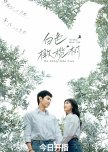
This review may contain spoilers
Missed opportunity
The plot of the novel gripped me however it introduces several notable changes that distinguish it from the original novel.Character Development and Dynamics:
Protagonist's Portrayal: In the novel, Jun Qiluo is depicted as a resilient and multifaceted character, balancing her roles with depth and nuance. The drama, however, has faced criticism for its portrayal of Jun Qiluo, particularly concerning the lead actress's performance. Some viewers feel that the on-screen representation lacks the emotional complexity present in the literary version. citeturn0search3
Male Lead's Characterization: Xuan Lie's character in the novel is portrayed as a formidable and authoritative figure. The drama adaptation, however, has been critiqued for altering his persona, presenting him as more emotionally vulnerable, which some fans believe deviates from his original "badass general" image. citeturn0search3
Plot Adjustments:
Narrative Pacing and Structure: The novel's storyline is known for its engaging and well-structured plot. In contrast, the drama has been critiqued for pacing issues, with some viewers noting that certain episodes feel either rushed or overly drawn out, affecting the overall narrative flow. citeturn0search3
Key Plot Modifications: While specific plot details are altered in the drama, to avoid spoilers, it's noted that certain significant events from the novel are either omitted or modified, leading to a different emotional impact and character development trajectory.
Production Elements:
Visual Representation: The drama boasts high production values with elaborate costumes and set designs that bring the historical setting to life. However, some viewers have pointed out inconsistencies in visual effects and cinematography, which occasionally detract from the immersive experience. citeturn0search2
Acting and Performance: The casting choices, particularly for the lead roles, have been a topic of discussion among fans. While the novel allows readers to imagine the depth of characters, the drama's portrayal has received mixed reviews, with some praising the chemistry between leads and others critiquing the emotional delivery. citeturn0search3
In summary, while "Everlasting Longing" strives to bring Xi Juan's beloved novel to the screen, it introduces changes in character portrayals, plot structures, and production choices. These adaptations have led to varied receptions among audiences, with some appreciating the fresh take and others longing for a rendition more faithful to the source material.
Was this review helpful to you?

This review may contain spoilers
Love Amidst the Ruins: A Haunting Romance in a War-Torn Land
WARNING:DON'T WATCH IF YOU ARE EASILY TRIGGEREDDRAMA CONTENT WARNING:Dark themes present like PTSD,******,etc.
NOTE:This is a chatgpt generated review after distilling the bests and the negatives.
"White Olive Tree" is a beautifully crafted Chinese drama that invites its audience to experience a slow-burning, introspective journey. The series uses the metaphor of the white olive tree—symbolizing resilience and quiet strength—to explore themes of tradition, identity, and personal growth.
Positives
• Stunning Cinematography: The visual presentation is one of the drama’s standout features. Each frame is meticulously composed, with natural landscapes and intimate close-ups that capture both the grandeur of nature and the subtleties of human emotion.
• Compelling Performances: The lead actor delivers a nuanced performance that anchors the narrative, bringing depth and authenticity to a character caught between modern dilemmas and traditional expectations. The supporting cast, though uneven at times, contributes memorable moments that enrich the overall story.The compelling performances in White Olive Tree are one of its strongest assets, bringing depth and authenticity to a story that relies heavily on emotional nuance. The lead actor delivers a powerful portrayal of a character torn between love, duty, and the scars of war, capturing the internal struggles with subtle facial expressions and restrained yet impactful delivery. Their chemistry with the female lead is palpable, making their moments of tenderness and conflict feel raw and deeply moving.
The supporting cast also contributes significantly to the emotional weight of the drama. From hardened soldiers grappling with loss to civilians clinging to hope in a shattered world, each performance adds layers to the story. While some side characters could have been developed further, their portrayals still succeed in enriching the atmosphere of the drama. The actors’ ability to convey complex emotions—sometimes without words—ensures that even the quietest moments carry weight, making White Olive Tree a drama that lingers in the mind long after the final scene.
• Atmospheric Score: The musical score complements the visual storytelling perfectly. Its gentle, evocative tunes enhance the drama’s reflective tone, drawing viewers deeper into the world the characters inhabit.The melodies subtly shift with the emotional currents of the story, intensifying moments of longing, sorrow, and quiet resilience. Rather than overwhelming the narrative, the music acts as an invisible thread that binds the scenes together, allowing emotions to linger long after the dialogue fades. This immersive quality makes the viewing experience not just engaging but profoundly affecting, as if the audience is not merely watching the story unfold but feeling it resonate on a deeper, almost subconscious level.
• Thoughtful Storytelling: The drama excels in its understated narrative style. It invites viewers to engage with its symbolism and themes, offering a contemplative exploration of life’s complexities without relying on overt exposition.The thoughtful storytelling in White Olive Tree is one of its most defining features, elevating it beyond a conventional war-time romance into a deeply introspective journey. The drama unfolds with a poetic sensibility, relying on quiet moments, unspoken words, and symbolic imagery to convey its themes of love, loss, and resilience. Rather than spelling everything out for the audience, it trusts viewers to engage with the material on a deeper level, making each revelation feel earned and impactful.
One of the drama’s strengths lies in its ability to balance personal struggles with the larger backdrop of war and destruction. The narrative doesn’t merely use the war as a setting but intertwines it with the characters' emotional battles, showing how external chaos mirrors their internal turmoil. Flashbacks, fragmented memories, and parallel storytelling techniques are used effectively to build tension and emotional weight, ensuring that even the smallest details carry significance.
Additionally, White Olive Tree excels in exploring moral dilemmas, forcing its characters to navigate between duty and personal desire, past and present, survival and sacrifice. By focusing on these intricate conflicts rather than relying on melodramatic twists, the drama maintains a mature, thought-provoking tone. The pacing, though slow at times, allows for deep character development, making the emotional payoffs all the more satisfying. This deliberate and reflective approach ensures that White Olive Tree is not just a love story but a meditation on the fragility and strength of the human spirit in times of crisis.
Negatives
• Pacing Issues: While the deliberate pace allows for a deep immersion into the story, some viewers might find the initial episodes overly slow. The measured unfolding of events could be challenging for those accustomed to a more dynamic storytelling style.
• Underdeveloped Subplots: Some secondary characters and subplots do not receive the same level of attention as the main narrative, which can make parts of the story feel underdeveloped. This occasionally detracts from the overall richness of the drama.
• Heavy Symbolism: The extensive use of symbolism, while artistically ambitious, can sometimes feel forced. At moments, the narrative leans so heavily on metaphor that it may obscure rather than clarify the characters’ motivations and the story’s direction.
Final Thoughts
"White Olive Tree" is a drama that will appeal most to viewers who appreciate artful, meditative storytelling. Its strong visual aesthetic and emotional depth make it a rewarding experience, though the slow pace and occasional narrative gaps may not suit everyone’s tastes. Overall, it stands as a testament to the beauty of subtle, character-driven drama in modern Chinese television.
Was this review helpful to you?


